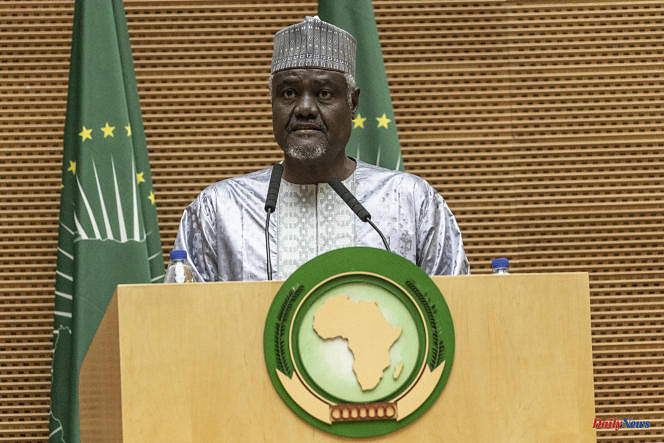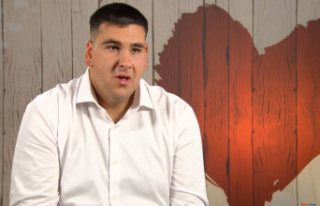The African Union (AU) warned Thursday (May 25th) that Africa must not become a "geostrategic battleground" again, as warring Russia and Ukraine vie for greater influence on the continent. The head of Ukrainian diplomacy, Dmytro Kouleba, currently on tour in several African countries, called on the continent to support Kiev against Moscow and spoke on Thursday of the adoption of a "first African strategy".
"In this international context of confrontation, diverging geopolitical interests, the will of each other threatens to transform Africa into a geostrategic battleground, thereby recreating a new version of the Cold War", warned the chairperson of the AU Commission, Moussa Faki Mahamat. “In this zero-sum game, where gains for others translate into losses for Africa, we must resist all forms of instrumentalization of our Member States,” he continued.
Moussa Faki Mahamat was speaking at the African Union podium in Addis Ababa, on the occasion of the 60th anniversary of the Organization of African Unity (OAU), founded on May 25, 1963 in the Ethiopian capital and now the AU in 2002.
Africa is at the heart of international struggles for influence which have intensified since the Russian invasion of Ukraine in February 2022. Many African countries are very dependent for their food on grain imports from Russia and Ukraine. An agreement allowing the export of Ukrainian grain through the Black Sea, sponsored by the UN and Turkey and concluded in 2022, was renewed last week for two months.
A "first Ukraine-Africa summit"
Hit by heavy Western sanctions, Moscow is seeking support in Asia and Africa, where many states have not openly condemned the Russian military intervention. Russia has multiplied initiatives on the continent in recent years, aimed at posing as an alternative to the former colonial powers. A Russia-Africa summit, the second of its kind, is scheduled for the end of July in Saint Petersburg. At the beginning of the year, the head of Russian diplomacy Sergey Lavrov also visited several African countries, including Mali, Eritrea and Sudan.
For his part, his Ukrainian counterpart is making his second African tour in less than a year. "We recently adopted our first African strategy and intensified our political dialogue with many countries on the continent," Kouleba said Thursday in a statement issued on the occasion of the OAU's 60th anniversary. He announced the opening this year of new Ukrainian embassies in Africa and the organization of the "first Ukraine-Africa summit".
Mr. Kouleba was in Rwanda on Thursday, after Morocco and Ethiopia. In Addis Ababa on Wednesday, he called on some African countries to abandon their "neutrality" in the conflict and to support kyiv in the face of Moscow. In February, 22 of the 54 AU member states abstained or did not vote on the latest UN General Assembly resolution calling on Russia to withdraw its forces from Ukraine. Two states – Eritrea and Mali – voted against. Countries like Senegal and South Africa abstained.
At the same time, an African mission led by six African leaders to discuss a settlement of the conflict in Ukraine, and announced by Pretoria, is to visit Ukraine and Russia. According to Mr. Lavrov, this mission which will include in addition to South Africa, Senegal, Zambia, Congo, Uganda and Egypt, is expected in Russia in June or July.
At the AU podium on Thursday, Ethiopian Prime Minister Abiy Ahmed called for strengthening African unity. “Today, our continent (…) is rapidly becoming a strong voice in the global arena,” he said.












